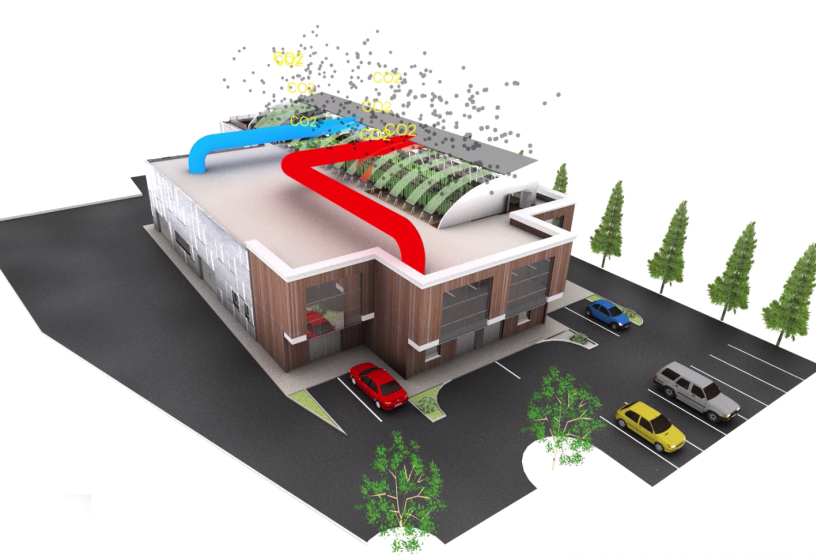Marielle Dubbeling: "People in Luxembourg don't feel the need yet"

INTERVIEW
Sustainability MAG: What is the RUAF FOUNDATION’s ambition ?
Marielle Dubbeling: We are a partnership made up of couple of cities, research institutes and NGOs. We believe that you have to combine practice, research and policies together to achieve results. We were founded about 15 years ago with a mandate to support better urban food systems. Our key focus is on urban agriculture, including both community and corporate gardening as well as larger farms in the city. We work and report on innovations, such as the role of urban agriculture in municipal climate change and disaster reduction planning, business models for short supply chains and organic waste management, the role of private sector in city region food systems, the role of local production for food sovereignty and local implementation of the SDGs, amongst others.
We work all over the world and support around 40 cities in designing new policies and programs. Originally we worked in developing countries, but since the 2008 food price crisis, we are increasingly present in Europe as well.
Do you think there is more pressure for emerging markets to respond to food resilience than for wealthier states, like Luxembourg?
The drivers are different. In the global South, you have situations where it is really about food production and food security.
In the global North, it is more about healthy food and diet (1/3 of the population in the Netherlands is obese). It is also about developing new economic opportunities and green jobs for the unemployed youth. So the drivers are different, but in the end, the strategy is the same.
What are the role and interest of the private sector in developing a resilient food system, especially if it is not the core business of the enterprise?
They should have an ethical and economic interest. Firstly, producing food or creating employment opportunities and protecting the environment, are tangible opportunities for enterprises to help improve the world. And there is also an economic driver: in some case they can make more money by offering a product which is targeting a niche market, like a hotel offering salads grown on their rooftop garden. It helps differentiate your company and attract new customers. There are direct economic drivers and financial incentives. For instance, rooftop gardening is very good at lowering room temperature. You can also recycle wasted heat from industries in greenhouses. Both of these serve environmental and economic interests.
Corporate gardening can become an attractive business model but, at RUAF we try to challenge this: go one step further, by making sure it is socially inclusive. For example, the French group Carrefour is now thinking of promoting gardens on their rooftops or around their supermarkets. Great, but then what about local farmers who produce and sell the same produce? Why can’t you specialise in specific crops and varieties that local producers don’t grow? Think of a model that does not compete with local farmer. Think complementarity.
What type of urban agriculture is best adapted to companies?
There are couple of models most relevant to enterprises. Open rooftops, greenhouse rooftops which recycle heat and CO2 from the building and create circularity in waste streams, as well as integrating production in the enterprise restaurant.
What is the role of public authorities to support the private sector in corporate gardening? How can a Public Private Partnership support new collaborative models?
Governments can strongly encourage companies to consider this social inclusion aspect by adopting new regulations or providing incentives. For instance, the government can help in planning regulation to allow rooftop gardening.
They may also have a role in piloting experiences during the uncertainty of early business models development. This can be done through private-public partnerships: in the Netherlands, a local government is working in partnership with a hospital to set up a pilot model. The ambition there is to test how to get local fresh food in hospitals.
How can we upscale urban gardening in a country like Luxembourg?
It always depends on the need and pressure people feel. RUAF works in refugee camps in war affected countries where there is clearly a large need for food production, but they have the disadvantages of having less human capacity and financial resources. Luxembourg has the latter but people don’t feel the need yet, as they can buy everything they want in the supermarket for cheap prices. We have to work on raising awareness; we need to demonstrate the huge potential impact of these projects on climate change mitigation and citizen engagement.

Marielle Dubbeling - Director, RUAF Foundation
Marielle Dubbeling is the Director of the RUAF Foundation-Global Partnership on Sustainable Urban Agriculture and Food Systems based in the Netherlands (www.ruaf.org). She previously worked for 5 years as the Urban Agriculture Coordinator for the UN-Habitat/UNDP Urban Management Programme in Latin America.
To be read also in the dossier "Feed The City":




